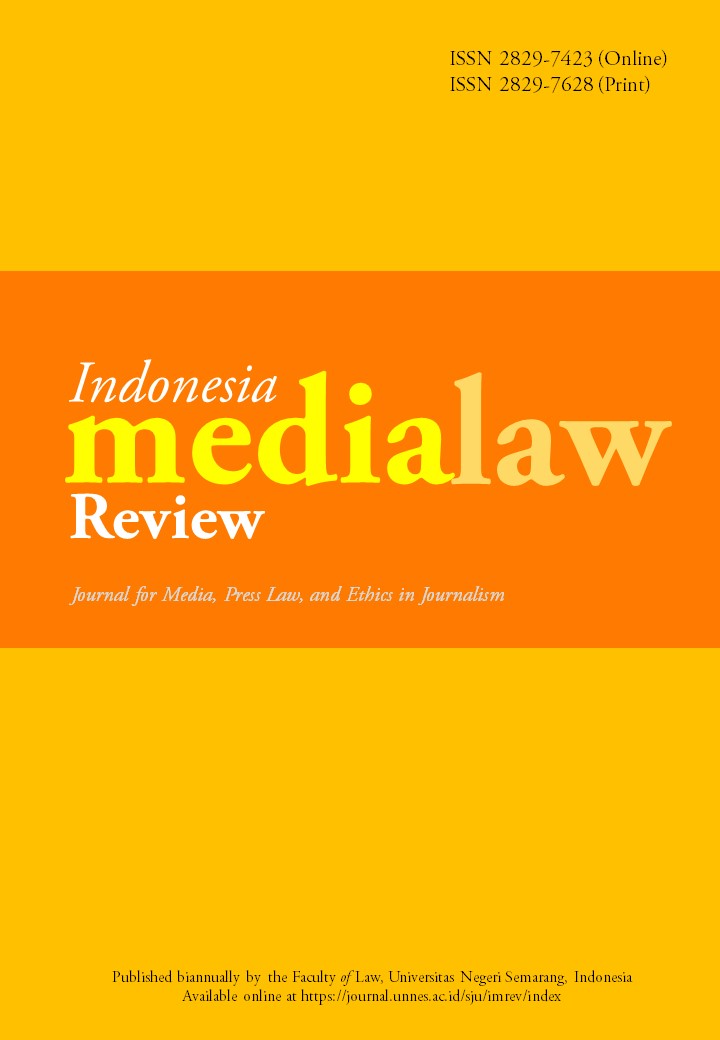Exploiting Indonesia’s Turmoil: Provocative Media Framing in Criminal Cases—Ethical Reporting or Misleading Narratives?
Main Article Content
Abstract
This study delves into the contentious terrain of media framing in criminal cases against the backdrop of Indonesia's tumultuous landscape, aiming to discern whether such practices adhere to ethical reporting standards or perpetuate misleading narratives. Through meticulous analysis, it unravels the intricate web of sensationalist language, biased perspectives, and selective coverage deployed by media outlets, illuminating their profound impact on shaping public perception and societal attitudes. One significant finding highlights the extent to which provocative media framing exacerbates existing tensions and deepens societal divides within Indonesia. By amplifying certain narratives while downplaying or omitting others, media outlets contribute to the polarization of public discourse, fueling mistrust and animosity among different segments of society. Moreover, the study underscores the ethical implications of such practices, raising crucial questions about the responsibilities of journalists and media organizations in navigating Indonesia's complex socio-political landscape. Amidst these challenges, the research emphasizes the imperative for media practitioners to uphold ethical principles and promote responsible reporting practices. By fostering a more nuanced and balanced narrative that reflects the diverse realities of Indonesian society, journalists can play a pivotal role in fostering understanding and unity. Furthermore, the study advocates for greater transparency and accountability within the media industry, urging stakeholders to critically evaluate the ethical considerations inherent in their reporting practices. In conclusion, this study serves as a call to action for journalists, media organizations, and policymakers to reevaluate their approach to media framing in criminal cases. By prioritizing ethical reporting standards and promoting a more inclusive narrative, Indonesia can move towards a media landscape that fosters dialogue, empathy, and social cohesion.
Article Details

This work is licensed under a Creative Commons Attribution-ShareAlike 4.0 International License.
